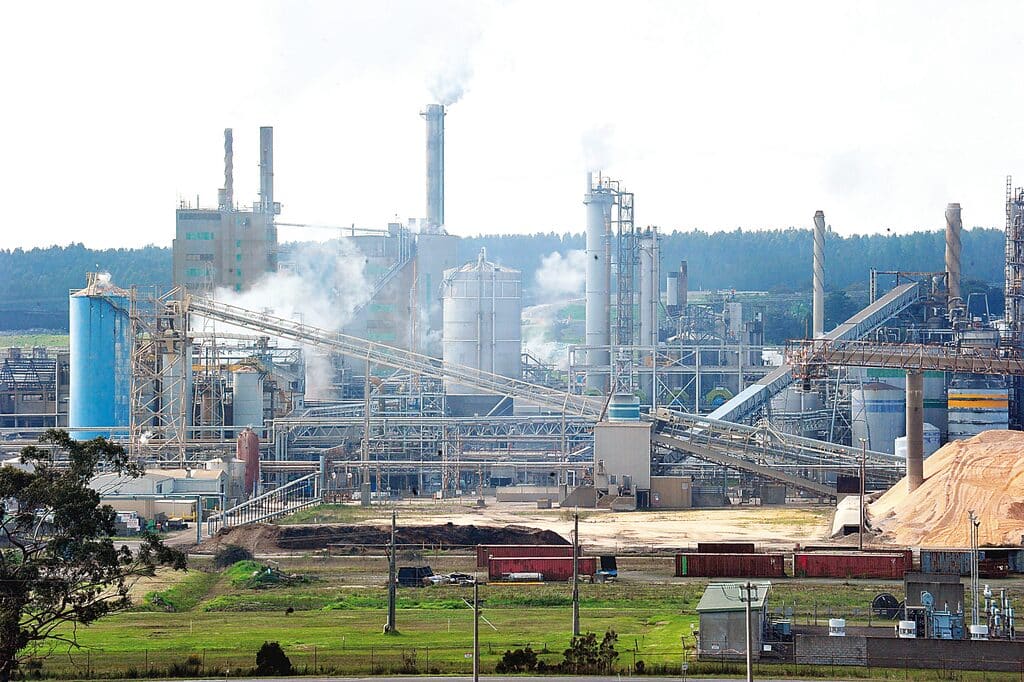Opal Australian Paper is closing the M2 machine, which manufactured white and brown packaging paper at its Maryvale Mill in Victoria’s Latrobe Valley.
The decision follows Opal’s decision in February to end white pulp and paper manufacturing at the Maryvale Mill, which resulted in the closure of its Paper Machine 5 (M5), which previously made copy paper, including Reflex.
“This situation will lead to changes in our manufacturing program; for example, we are continuing to work towards the future transfer of some brown M2 products to the M3 machine,” Opal Australian Paper said in a statement provided to Wide Format Online Magazine.
Opal Australian Paper last month slammed the Victorian government’s decision to end all native forest logging in December 2023, six years earlier than planned.
“We have targeted the closure of M2 to take effect in late August, but this timing will be informed by a number of considerations, including customer discussions.”
“Opal has commenced consultation with our affected team members and their representatives on the impact of this decision.”
Opal Australian Paper will provide affected staff additional support through its Employee Assistance Program and other onsite services at the Maryvale Mill.
Victorian Native Forest Ban drove the decision
According to the company, the lack of VicForests supply means Maryvale Mill has insufficient wood to continue manufacturing white paper products.
“Due to the end of VicForests supply and following previous team member consultation, Opal has decided to close M2, which previously manufactured white and brown packaging paper.”
“Despite the heavy financial burden from this unplanned situation, Opal is seeking a successful transition of the Maryvale Mill into a commercially sustainable manufacturing operation,” it added.
“The Maryvale Energy from Waste (EfW) facility is important to securing the Mill’s future energy needs, and the consortium partners are committed to continuing to move this project forward.”
Earlier this month, the City of Latrobe formerly announced its support for the timber industry, workers, and local communities.
The City of Latrobe services the Gippsland region in eastern Victoria; it has a population of more than 75,000 and is a major hub for forestry, including Opal’s pulp and paper mill
Opal Australian Paper is the Latrobe Valley’s largest private employer, with about 800 direct employees.
“The timber industry has been a key element of our community for generations, with the Maryvale Mill playing a pivotal role in Latrobe City’s economic landscape for over 85 years,” a statement from the latest Council meeting said.
The Council also highlighted that the Mill’s reduced operating capacity due to the ban on the native harvest is expected to ripple through the community.

The decision to close the mill will result in an expected loss of 4.9 billion yen
According to Office Products International, Nippon Paper’s withdrawal of its white pulp and paper business will result in an expected loss of 4.9 billion yen (AUD 51,216,677) in the first quarter of the financial year 2023/24.
Nippon also expects to record an impairment loss of 1.2 billion yen (AUD 12,547,200) on fixed assets due to a decision to shut the M2 paper machine at the Maryvale Mill from around late August 2023.
Opal Cartons Australia will be closing its Heidelberg facility
Meanwhile, Opal Cartons Australia will close its Heidelberg facility in September 2024, consolidating its operations across its sites in South Australia and New South Wales.
As reported by PKN, the lease for Opal Cartons Australia’s Heidelberg site will expire and is not up for renewal.
Julian Mathers – Group General Manager for Opal Converting and Packaging Plus, said the company has investigated moving to another site in Melbourne.
However, this was not viable so the site will be closed by September 2024.

The bulk of the machinery and equipment will be relocated from the Heidelberg site to be redeployed at the company’s two existing sites at Regency Park, South Australia and Botany, New South Wales.
The company says it will be working closely with its customers to ensure an effective transition of their business before the site’s closure.
“While we have a long lead time until the Heidelberg site closes, Opal Cartons Australia is committed to working with and supporting all affected team members throughout the transition, including by identifying opportunities to take up roles at alternative Opal sites, where possible,” Mathers said.
Opal Cartons Australia converts and prints folding cartons and carton sleeves, quick-serve restaurant cartons, carry packs, facial tissue cartons, confectionery cartons, and general retail folding cartons.
Its folding carton printing capabilities include graphic and pre-press design flexographic printing, post-print, and lithographic printing.







